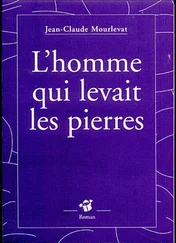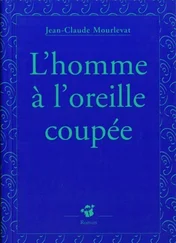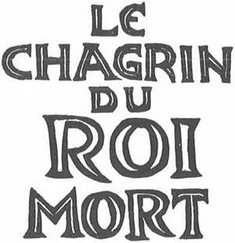Jean-Claude Mourlevat - Winter's End
Здесь есть возможность читать онлайн «Jean-Claude Mourlevat - Winter's End» весь текст электронной книги совершенно бесплатно (целиком полную версию без сокращений). В некоторых случаях можно слушать аудио, скачать через торрент в формате fb2 и присутствует краткое содержание. Год выпуска: 2010, ISBN: 2010, Издательство: Candlewick, Жанр: Старинная литература, на английском языке. Описание произведения, (предисловие) а так же отзывы посетителей доступны на портале библиотеки ЛибКат.
- Название:Winter's End
- Автор:
- Издательство:Candlewick
- Жанр:
- Год:2010
- ISBN:9780763651749
- Рейтинг книги:5 / 5. Голосов: 1
-
Избранное:Добавить в избранное
- Отзывы:
-
Ваша оценка:
- 100
- 1
- 2
- 3
- 4
- 5
Winter's End: краткое содержание, описание и аннотация
Предлагаем к чтению аннотацию, описание, краткое содержание или предисловие (зависит от того, что написал сам автор книги «Winter's End»). Если вы не нашли необходимую информацию о книге — напишите в комментариях, мы постараемся отыскать её.
Winter's End — читать онлайн бесплатно полную книгу (весь текст) целиком
Ниже представлен текст книги, разбитый по страницам. Система сохранения места последней прочитанной страницы, позволяет с удобством читать онлайн бесплатно книгу «Winter's End», без необходимости каждый раз заново искать на чём Вы остановились. Поставьте закладку, и сможете в любой момент перейти на страницу, на которой закончили чтение.
Интервал:
Закладка:
“Good-bye,” they said to the men as they went out.
“Good-bye,” one of them growled in return. Bartolomeo was just shutting the door when the man’s hoarse voice caught up with them, followed by a coarse laugh from his two companions. “Think she’d give us a song before she goes?”
Milena stopped dead. “Did you hear what he said?”
“I heard.”
She took hold of the collar of Bartolomeo’s coat, almost hanging on him. “Bart, you don’t understand!”
“What is there to understand?”
“They think I’m my mother! You can see they do! In the bus earlier, and now too . . .”
“A simpleton and three drunks, Milena! Come on. Please.”
She resisted him. “No, I’m going to ask those men! They must know. The one in the bus called me Bach. He said my name, do you hear? And a first name too. He said my mother’s name, Eva-Maria; I’m sure he did.”
“You may be right, but we can’t hang around here. They’ll be after us, remember. All it takes is for the manager of that café or one of his customers to make a phone call. So come on.”
He took her arm, and regretfully she let him lead her away.
The rain never stopped all morning. They walked on side by side through the drizzle, their steps in time with their breathing. The road went uphill, but they could see almost nothing of the plains they were leaving behind or the mountains ahead of them. Milena was feeling gloomy, and they didn’t talk much. A few cars slowed down as they caught up with them. They saw surprised faces and suspicious glances behind the windows.
“Let’s get off the road,” Bart said. “I’m sick of the way they’re staring at us.”
Late in the afternoon they caught up with a horse-drawn cart going up a stony path. A small, swarthy man was leading the horse by its halter. Milena, whose feet were beginning to feel sore in spite of her boots, put on her prettiest smile and asked, “Could you give us a lift?”
The farmer stopped, grudgingly, and let them step in over the side rail.
Inside the cart a woman of about sixty, wearing a coarse woolly cap on her head and a black apron, was sitting on a sack of potatoes. She greeted them with a smile, and then her small, deep blue eyes rested on Milena and stayed there, the intensity of her gaze at odds with the rest of her rather ordinary appearance.
“Do you . . . do you know me, ma’am?” Milena asked uneasily.
“Acourse I knows you,” the woman replied. Then, very quietly, she began to hum a tune with her mouth closed. Her voice was unsteady, and it was hard to follow the melody, but you could tell that as she sang, the woman was hearing another voice, a beautiful one, and was trying to imitate it.
Milena got goosebumps. “That . . . that’s very pretty. Where did you hear that tune?”
The woman ignored the question and went on humming dreamily. It was as if, looking at Milena, she were looking inside herself at the same time, seeing her own memories. She was concentrating on every note.
“Who sang that song?” Milena persisted when she had finished.
“Why, you!” the woman said. “We had your records at home, we did. A shame it were . . . Oh, it were a crying shame what happened.”
The cart stopped just then. The farmer unhooked the chain keeping the tailgate in place and flung it abruptly back. “You two get out! We’re here!”
“Wait a moment,” said Milena. “I just wanted to ask this lady —”
“There ain’t nowt to ask!” said the farmer, pushing the woman toward the house. “I never should’ve took you two up. You clear out of here, quick!”
They spent the next two nights in ruined houses. The walls protected them from the wind and the cold well enough to let them snatch a few hours’ sleep. As soon as they were up, they went on walking north. Hungry as they were, they tried to save their provisions as far as possible. They drank the icy water of mountain streams from their cupped hands.
At midmorning on the third day, the mist suddenly lifted, and they were amazed to see the unreal beauty of the landscape surrounding them. Green moorland stretched out ahead, sprinkled with gray rocks and small, sparkling lakes. Far away the snowy peaks of the mountains rose to the sky. Sharp air filled their lungs.
“Oh, my God!” exclaimed Milena. Words failed her and she couldn’t say any more.
“This is freedom,” Bartolomeo breathed. “What do you think of it now?”
“Oh — not bad!” she replied after a moment. “Let’s celebrate.”
She went up to a rock and sat down on it. When he was about to sit beside her, she pushed him away. “No, go farther off. Like that, yes.”
She straightened her back, put her hands on her knees, and took a deep breath.
“A poor soul sat sighing by a sycamore tree;
Sing willow, willow, willow!”
From the moment when she sang the first notes, the air around her seemed to be transfigured. Her pure voice spun invisible threads between earth and sky.
“With his hand in his bosom
And his head upon his knee;
O willow, willow, willow, willow!”
Milena sang effortlessly, her eyebrows drawn slightly together, her eyes closed. She didn’t open them until the last vibration of the last note had died away.
Bart, entranced, didn’t dare break the silence. His throat was tight with emotion.
“Did you like it?” asked Milena.
“Yes,” he said. “Yes, I liked it a lot. And I liked the little lines it gives you between the top of your nose and your forehead.”
“I know it does. They come as soon as I open my mouth to sing. I can’t seem to make them go away.”
He came over to her again and sat down on the rock beside her. “Where did you learn that song?”
“I feel as if I’ve always known it. I must have learned it when I was very small. From my mother, I suppose. I can understand that now. I know about twenty songs by heart, and I’ve always sung them to myself, first in the orphanage, then at the boarding school . . . always. I can sing them to myself in silence and hear them in my head. Sometimes I choose one and decide to sing it properly — I mean out loud.”
“What makes you decide to do that?”
“I don’t really know. The right moment. The right person.”
“I see — and was this time the right moment or the right person?”
“Take a guess!”
She took his hand as they started walking again. It was that evening that they decided not to go any farther.
The mountain refuge hut, in the shelter of a group of trees, stood just on the line reached by the first snows. The door was unlocked. The single room had a bunk bed pushed against the back wall, a huge fireplace, a table, two benches and a cupboard cobbled together out of rickety planks. They lit a fire and ate some of their provisions. Then they talked all night. They talked feverishly until they felt exhausted, and by the small hours of the morning, they had come to their decision.
Bart found a pair of rusty scissors in a drawer and sharpened them at length on a hard stone. Milena sat astride a wicker chair in front of the fire with her head facing the back of it and bent her neck, “Go on.”
Hesitantly, Bartolomeo slipped a heavy handful of blond hair between his fingers. “Are you sure? You won’t hold it against me later?”
“Look, I’m the one asking you to do it. We know we must go down again, and I don’t fancy having three-quarters of the population take me for a ghost. Go on, Bart.”
The first snip of the scissors gave them both a pang. After that Bart set to work as well as he could, sending locks of blond hair flying around them. Soon the feet of the chair were surrounded by a silky, golden carpet. When Milena had nothing left on her head but a short, untidy boyish haircut, he put the scissors down.
Читать дальшеИнтервал:
Закладка:
Похожие книги на «Winter's End»
Представляем Вашему вниманию похожие книги на «Winter's End» списком для выбора. Мы отобрали схожую по названию и смыслу литературу в надежде предоставить читателям больше вариантов отыскать новые, интересные, ещё непрочитанные произведения.
Обсуждение, отзывы о книге «Winter's End» и просто собственные мнения читателей. Оставьте ваши комментарии, напишите, что Вы думаете о произведении, его смысле или главных героях. Укажите что конкретно понравилось, а что нет, и почему Вы так считаете.












